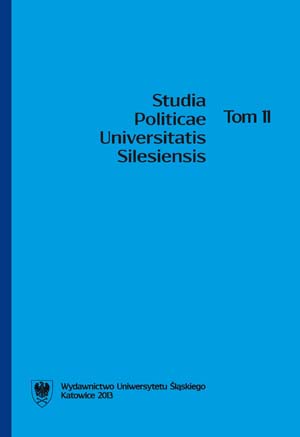Zbrodnia agresji w prawie międzynarodowym. Stan po nowelizacji Statutu Rzymskiego MTK
The crime of aggression in international law. After the Rome Statute reform ICC
Author(s): Tomasz IwanekSubject(s): Politics / Political Sciences
Published by: Wydawnictwo Uniwersytetu Śląskiego
Keywords: international law, crime, aggression, criminal justice, nullum crimen sine lege principle
Summary/Abstract: The article seeks to exploe the legal ramifications and provide analysis of the recent reform of the Rome Statute of the International Criminal Court of 1998 ICC entailing the adoption of a definition of the crime of aggression. Long neglected in international criminal law, the crime of aggression survived on the outskirts of regulation and may be, if circumstances allow, revived and renewed after the decision made at the ICC Review Conference in Kampala. Resolution RC/Res.6, as adopted in Kampala, defines the crime of aggression and sets out the jurisdictional mechanisms for its prosecution before the ICC. However, as the article argus, the compromise that gave life to the definition and the elements of the “new” crime of aggression was flawed, and the form of the crime is thus far from perfect. The author identifies several major problems with the adopted definition. Firstly, its link with UN General Assembly Resolution 3314 of 1974 is a source of a significant legal collision, confusing and wrongly construing the law of international responsibility of states and the law of the international responsibility of indivuals, as those branches of international law are very different from each other. This breeds legal uncertainty as to the content of an “act of aggression” and a possibile, and very serious, violation of the, inviolable and immovable in criminal proceedings, nullum crimen sine lege principle. When the contents of such acts will be determined by the UN Security Council, the nullum crimen principle will be violated. Secondly, the crime of aggression, as definded in Kampala, limits itself by being applicable solety to interstate conflict and senior political leadership. Not only does interstate conflict become less and less frequent, but also the possibility of trying and sentencing a senior political or military leader for the crime of aggression is slim, as evidenced by the problems with the execution of the ICC arrest warrant on President Omar al-Bashir. Thirdly, the construction of ICC jurisdiction over the crime of aggression, and its purported link with a UN Security Council decision, may not only submit the judicial operations of an independent court and prosecutor to the political issues and machinations ingerent to the UN Security Council, but may also further infringe upon the principle of nullum crimen sine lege. To summarize, the article presents a threefold critique of the definition of the crime of aggression in the Rome Statute of the ICC and expresses the author’s Concern for legal certainty and the dangers to international criminal justice. It strives to present the problems as well as several solutions and ways of construction favorable to international criminal justice.
Journal: Studia Politicae Universitatis Silesiensis
- Issue Year: 2013
- Issue No: 11
- Page Range: 287-307
- Page Count: 21
- Language: Polish

